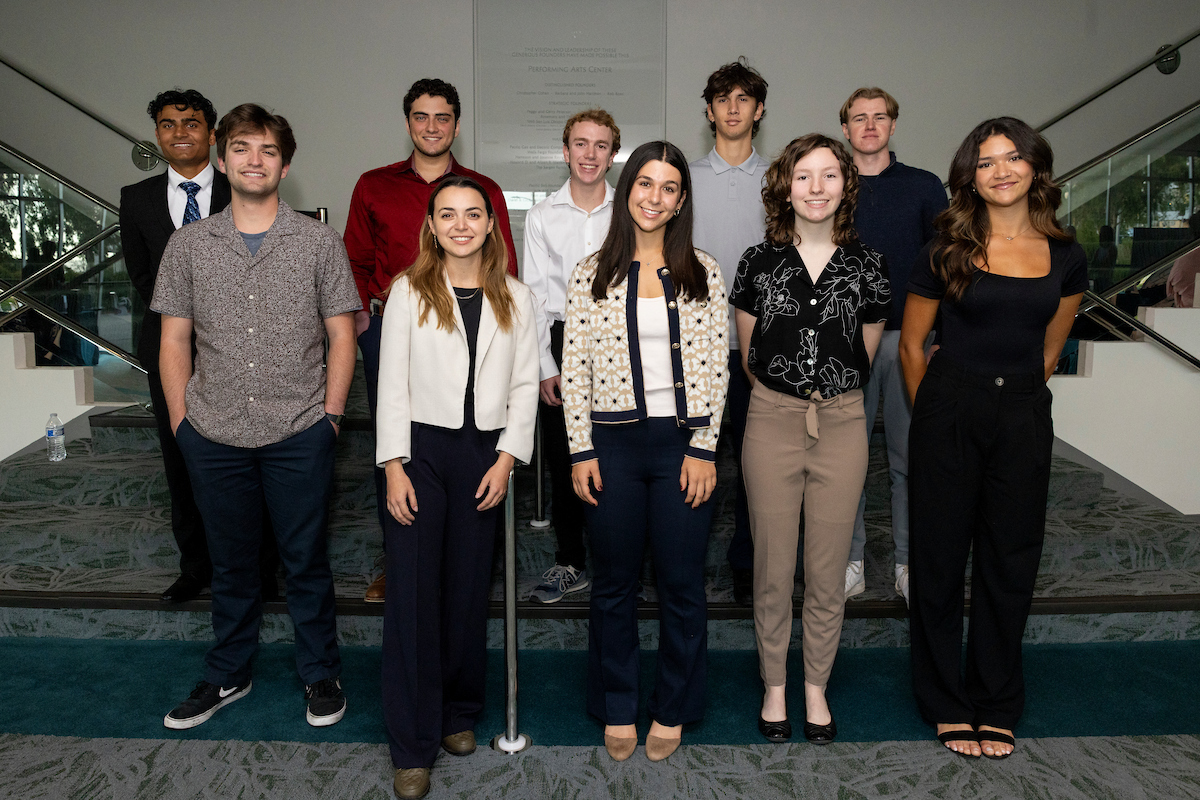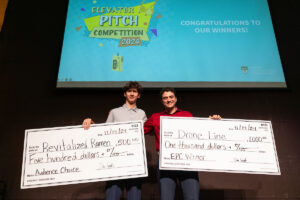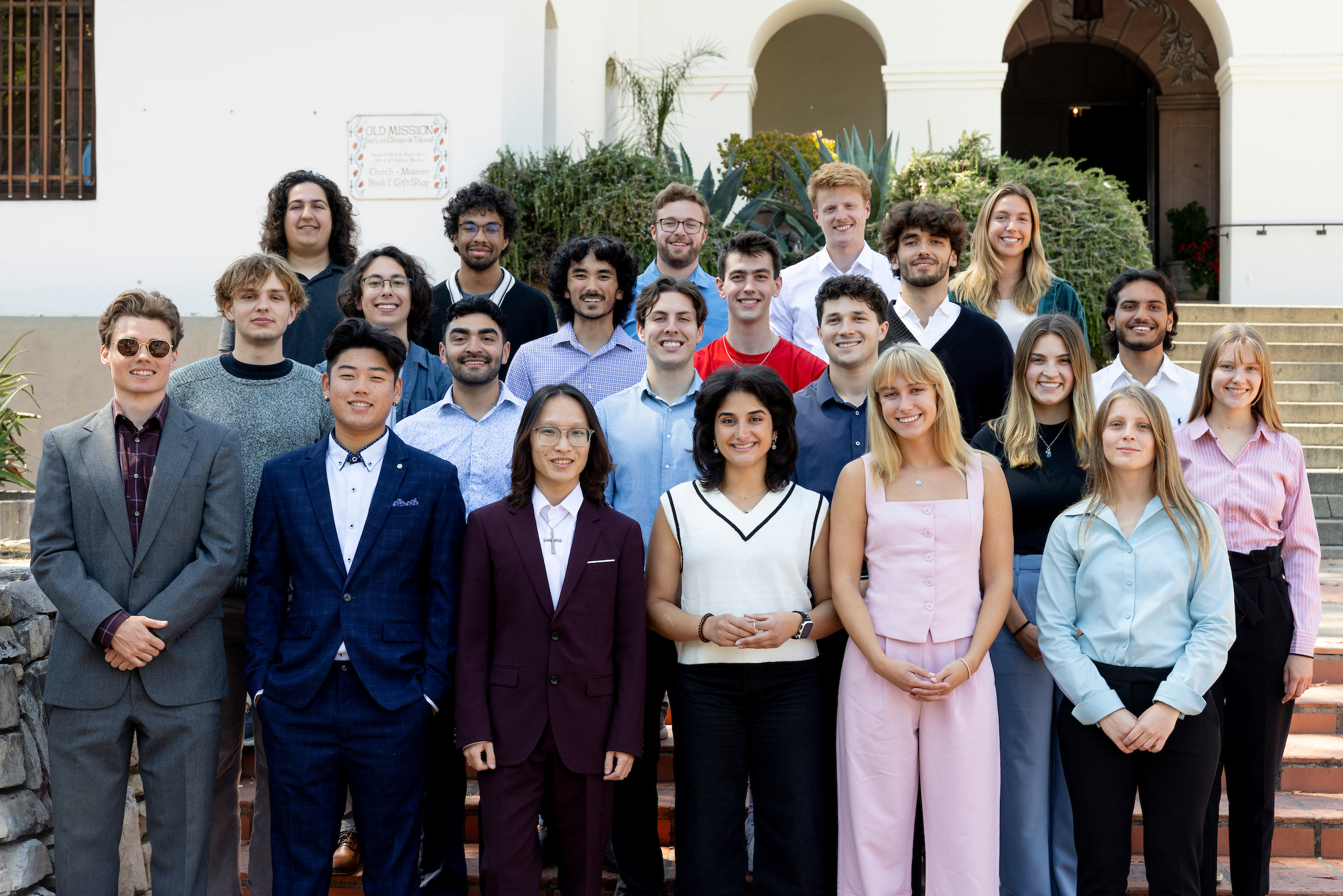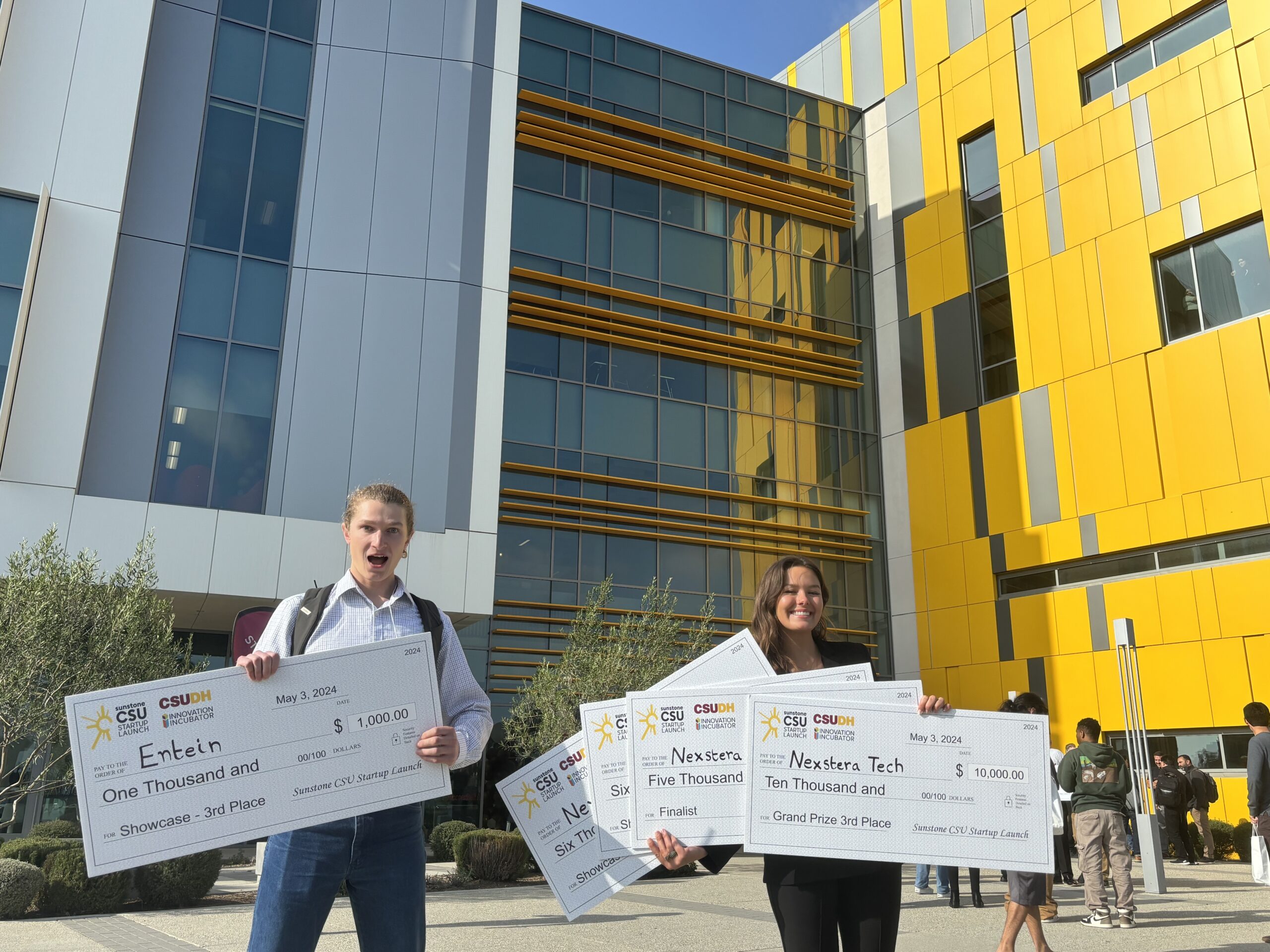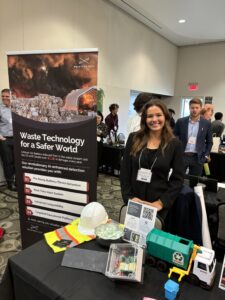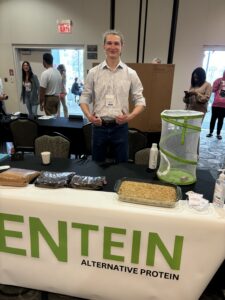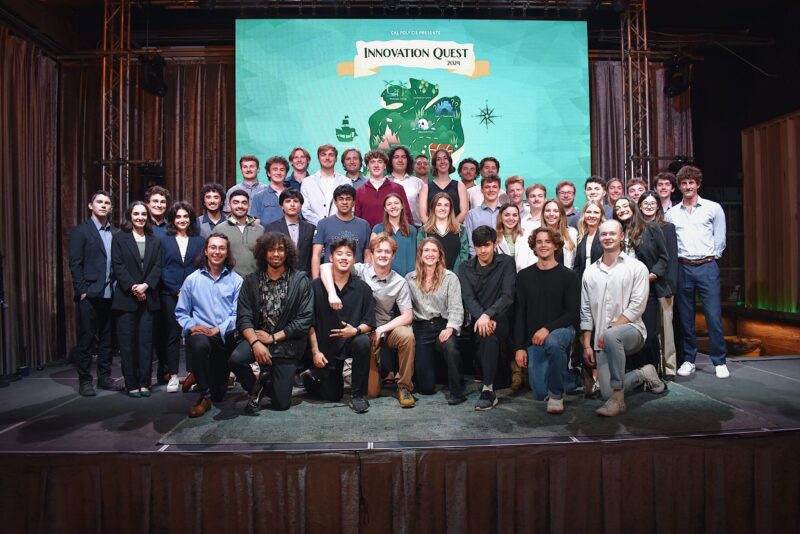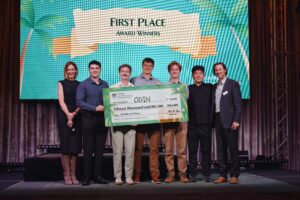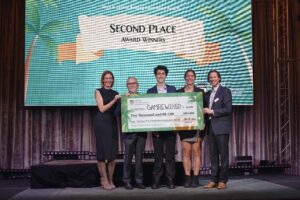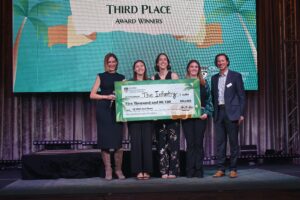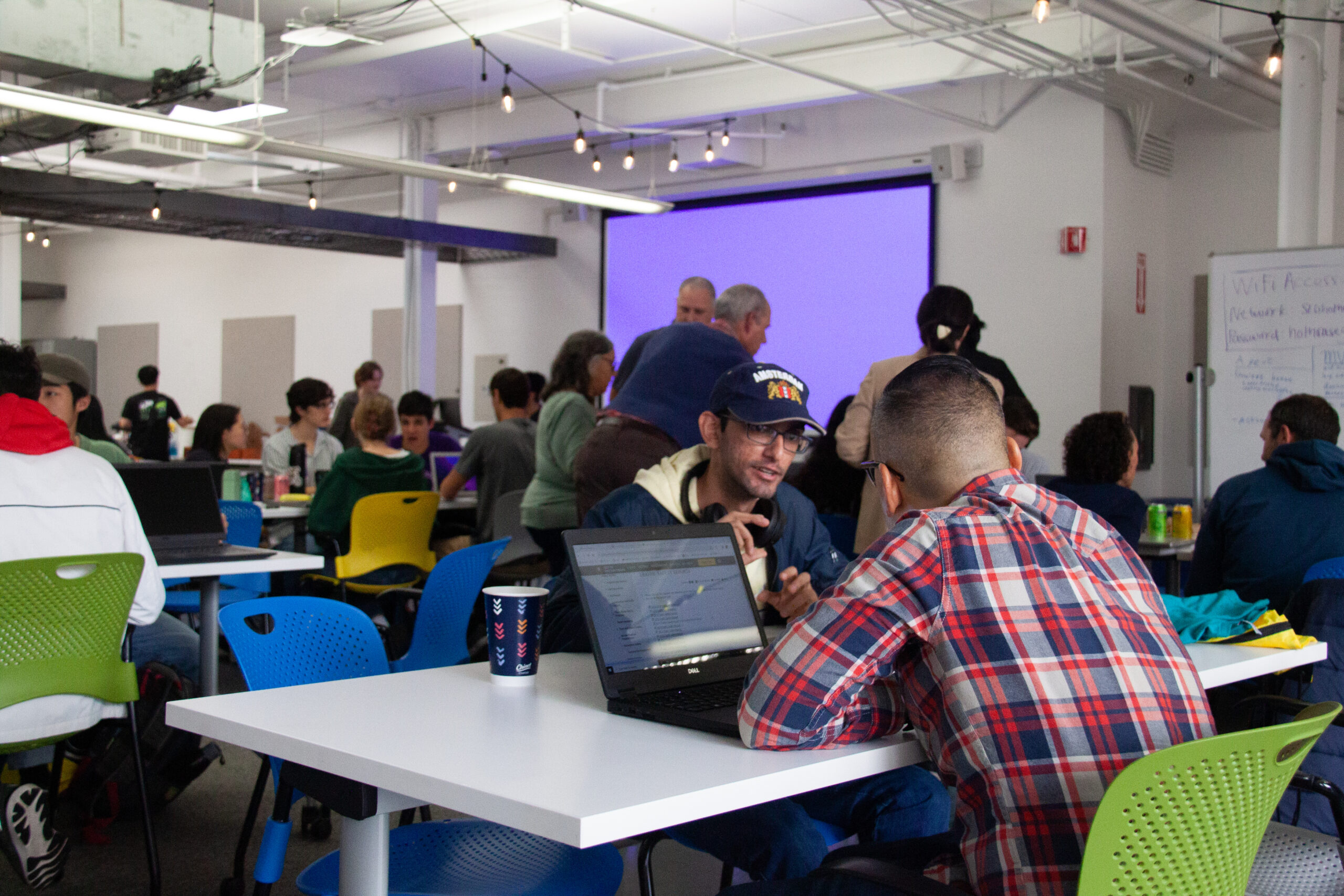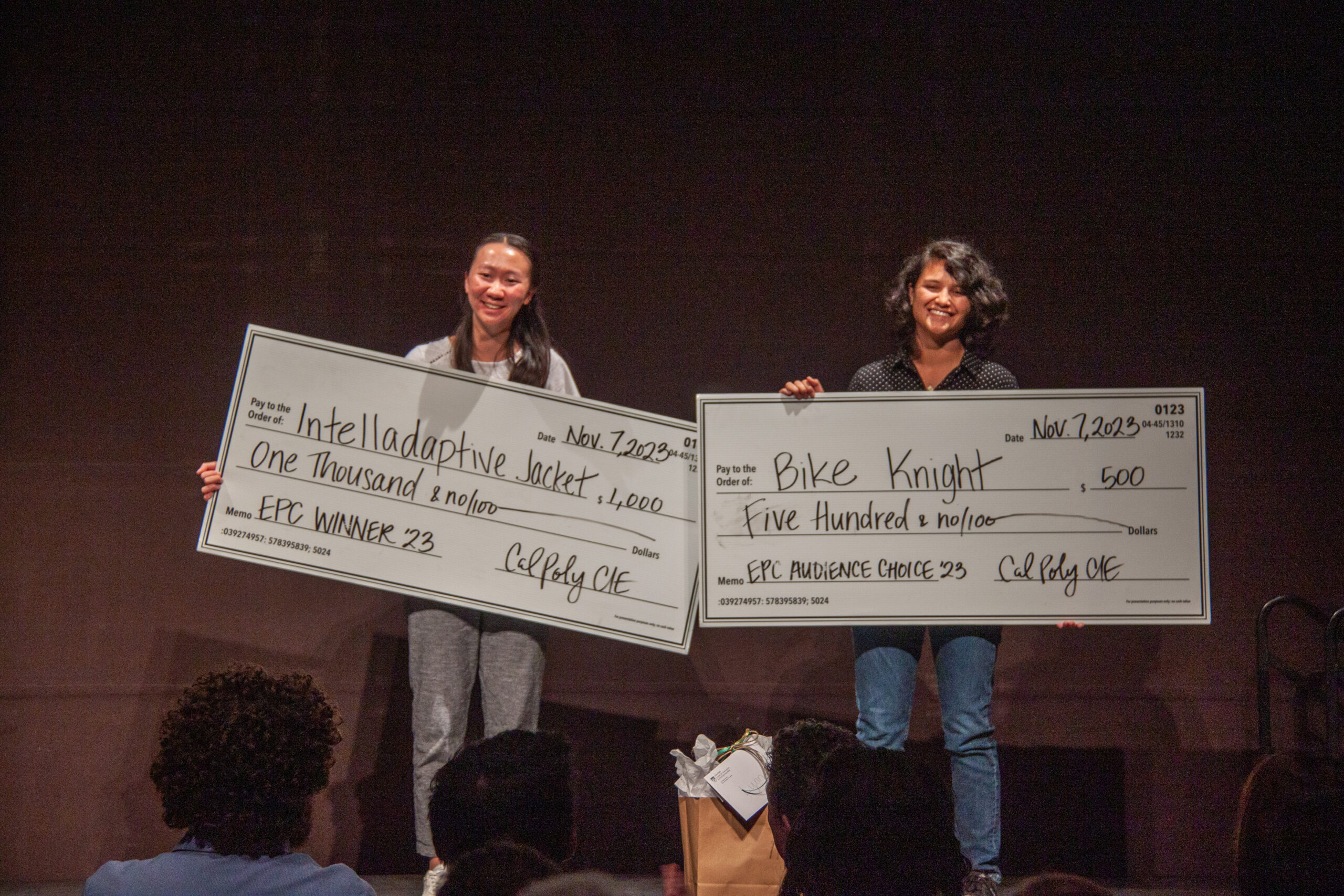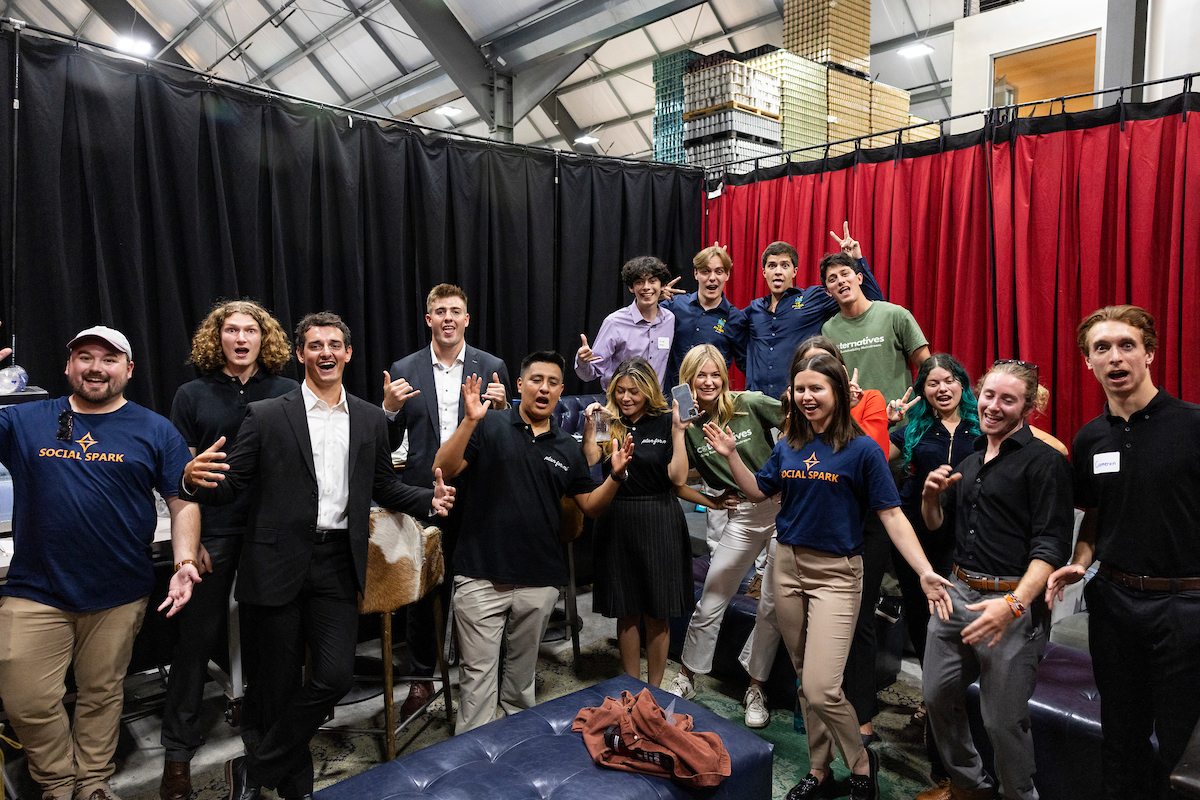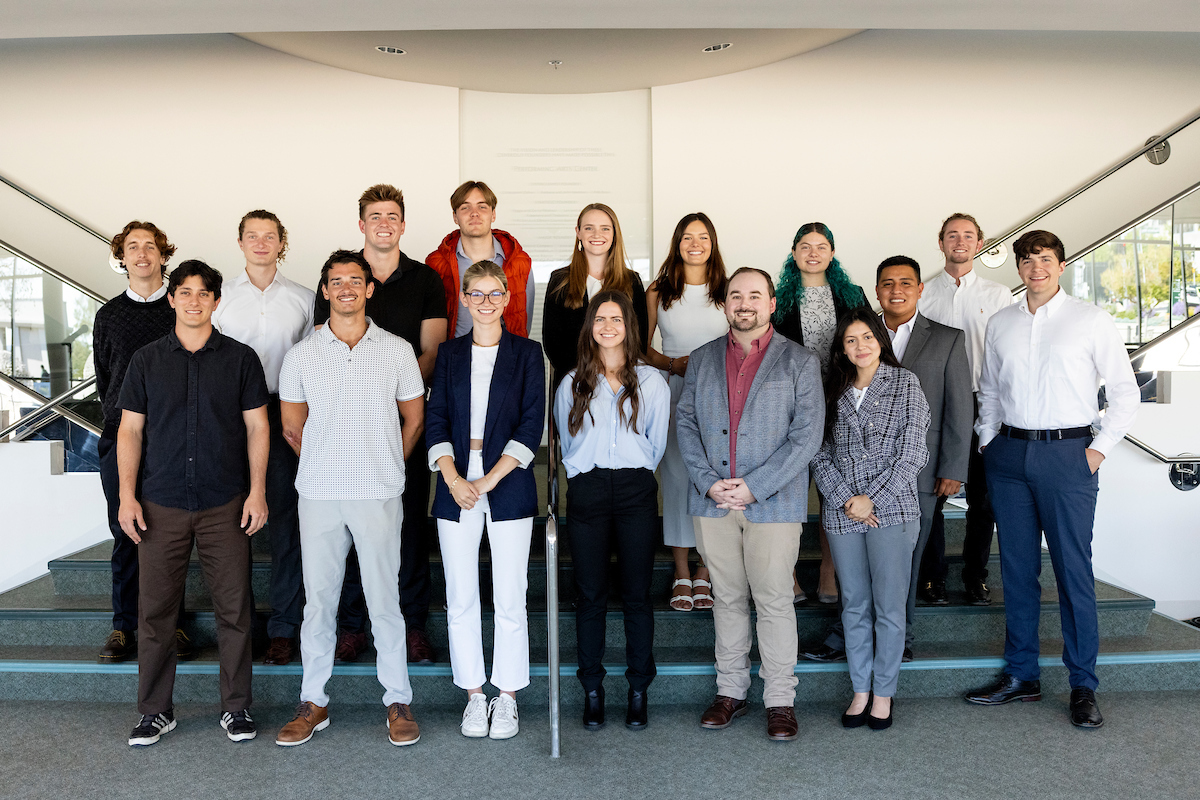Four Cal Poly Student Entrepreneur Teams Win Thousands for Innovative Startup Ideas at CIE’s 20th Annual Innovation Quest Competition
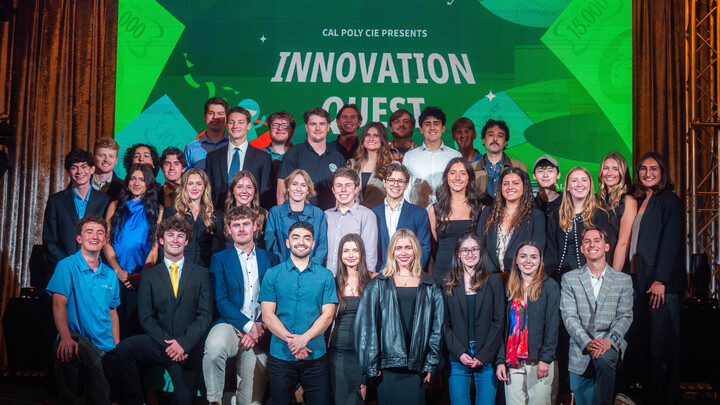
SAN LUIS OBISPO — Four student startup teams split $40,000 at the Center for Innovation and Entrepreneurship’s (CIE) annual Innovation Quest (iQ), a high-stakes competition where Cal Poly students pitch their innovative business ideas to a panel of judges to garner funding for their startups, celebrating its 20th anniversary this year.
“I’m so excited to be here tonight. This is the 20th anniversary of Innovation Quest,” said Cal Poly president Jeffrey D. Armstrong. “This has been helping students be successful for so many years. It was started by Laura Pickering, Rich Boberg and Carson Chen, and they’re still here today moving this along. I heard some of the pitches this morning and they were amazing. I’m so glad I didn’t have to pick the winner of this amazing event.”
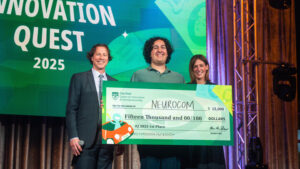
Mechanical engineering senior Alex Rosenbaum of Seattle, Washington, received the top prize of $15,000 for his solo-startup NeuroCom at the event, which took place in April on campus, with awards presented later at a local venue.
“Winning iQ is going to allow us to start working on this full time and help us continue boot-strapping towards our first customers,” said Rosenbaum. “I feel very excited. This is life changing.”
NeuroCom is developing a wearable tactile device that uses haptic feedback to enhance communication and situational awareness for military, law enforcement and first responders when visual or auditory cues fall short.
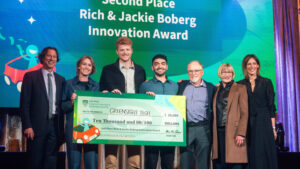
The Rich and Jackie Boberg Innovation Award of $10,000 went to GreenSight Technologies, an AI-powered platform to help refurbishers and resellers identify, evaluate and resell or dispose of electronic devices, including used computers, cellphones and tablets, more efficiently, keeping electronics out of landfills and making technology more accessible to all. GreenSight Technologies was created by: Jake Daniels (Engineering, ’24) of Palo Alto, California; master’s of electrical engineering student Diego Curiel of Santa Barbara, California; and Mackenzie Kettwig (Computer Engineering, ’24) of Colfax, California.
“Finishing second at iQ is an incredible feeling,” Curiel said. I’m grateful to everyone who contributes to making an event like this possible. I do want to mention that last year we participated and we did not place, so if you didn’t place this year, don’t let it discourage you from continuing to chase whatever it is you’re passionate about.”
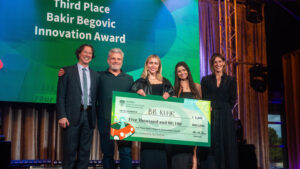
Agricultural business students Alexandra Malone of Los Gatos, California and business administration student Wian Roothman of Johannesburg, South Africa, received the Bakir Begovic Innovation Award of $5,000 for their startup Better Being Kefir. Their fermented-milk kefir is a probiotic-rich frozen dessert made with kefir, designed to replace the need for supplements by providing a flavorful way to boost gut health and immunity while making healthy living more enjoyable and accessible.
“Taking third at iQ was such an incredible achievement,” said Malone. Being surrounded by so many inspirational people and young entrepreneurs was inspiring.”
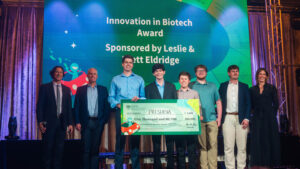
The $5,000 Biotech Innovation Award sponsored by Leslie and Brett Eldridge, went to Preserva Biosciences, a startup revolutionizing diabetes management, safety and cost savings for millions by developing the first-ever at-home insulin testing device for people dependent on insulin.
The startup was developed by: business administration senior Oliver Haas of Seattle, Washington; computer engineering student Isaac Lake of Thousand Oaks, California; UC San Diego biotechnology student Micaela Moreira; computer engineering major Brian Slonim of San Diego California; Luke Trill (Business Administration, ’24) of San Jose, California; and Ethan Vosburg (Computer Engineering, ’23) of Rocklin, California.
“It feels amazing to win this award,” Haas said. The ability to work on this project and make life easier for insulin-dependent people is a dream come true.”
Eleven finalists from more than 50 applicants pitched their innovative ideas in Cal Poly’s Nash Family Entrepreneurship Lab. The event’s banquet and awards ceremony were held at Rod and Hammer Rock later that evening.
Alumna Haley Pavone (Business Administration, ’18), CEO and founder of Pashion Footwear, was among the 18 past participants who returned as judges to celebrate 20 years of iQ. Pashion Footwear is an innovative fashiontech startup that has created the world’s first fully convertible heels and received first place at the 2017 iQ.
“It feels so full circle to now be back this year as a judge,” said Pavone, who formed Pashion Footwear in 2016 after her bare foot was impaled on the dance floor by another woman’s stiletto heel. “iQ is really what put us on the map and gave us the funding that we needed to make our first prototype that made the last eight years possible. It’s so cool to be a part of giving that opportunity back to the students of today.”
iQ was founded in 2004 by Cal Poly electrical engineering graduates and business leaders Chen, Boberg and Pickering. Since its launch in 2004, iQ participants have received over $400,000 that has helped launch several successful businesses, such as iFixIt, Grinds Coffee Pouches, Mantis Composites, Guardian Bikes, Liftgator and Alydia Health.
“It was great to see such a diverse group of students from all over our campus, particularly on an anniversary year,” said Dr. Thomas Katona, CIE academic director. “They really represents the full range of students who have been impacted by this program—and they brought it. They brought it hard.”
In addition to the winners, seven finalists were chosen:
- Aurela aims to develop aesthetic jewelry that is embedded with drug detection technology to empower women to feel safe and confident while enjoying social experiences. Aurela was created by: business administration students Addie Bounds of Jupiter, Florida; Lindsey Williams of Denver, Colorado; and Kiara Robichaud, a biomedical engineering student from Redding, Connecticut.
- Devscribe aims to simplify application programming interface, or API, documentation by allowing companies to generate, edit, test and host beautiful API docs in one place with themes that match their company’s branding. API software allows two applications to talk to each other. Devscribe was created by: industrial engineering seniors Tyler Kim of Los Altos, California; Shivam Shrivastav of San Ramon, California; computer science senior Samuel Solano of Huntington Beach, California; and Gianni Hart, a business administration senior from Nipomo, California.
- Ecoplasticity aims to redefine and replace plastic with their biodegradable coating derived from an invasive species of seaweed that is completely compostable and anaerobically digestible. Ecoplasticity was created by Mayela Fernandez Cantu, a graduate business administration student from Monterrey, Mexico, and material engineering senior Michelle Cullen of Redondo Beach, California.
- Moove Hydration aims to develop a dairy-based hydration beverage that upcycles milk permeate, the liquid remaining after proteins and fat are removed, from California dairies, reducing waste while delivering naturally occurring electrolytes for superior hydration without the taste and texture of milk. The startup was created by agricultural business senior Marielle Thomas of Sacramento, California, and alumnus Nathan Smidt (Agricultural Business, ’24) of Bakersfield, California.
- Mr. Turtle Laundry aims to tackle the single-use plastic packaging problem through their innovative laundry detergent refill stations. Mr. Turtle Laundry was created by: computer science junior Seth Johnson of Seattle, Washington; two alumni, Michael Hennessy (Business Administration, ’25) of Huntington Beach, California, and Benjamin Arts (Business Administration, ’24) of San Jose, California; and Colin Brown (Economics, ’23) of Bend, Oregon.
- Simpill aims to help people maintain independence and peace of mind through flawless management of their medication. The startup was created by: manufacturing engineering students Ben Tratt of Seattle, Washington, and Ben Lipper of San Luis Obispo, California; computer engineering senior Victoria Asencio-Clemens of Santa Cruz, California; and business administration senior Eli Lazar of Issaquah, Washington.
- The Portal aims to provide a comforting escape for patients on their healing journey through immersive projections that will fill hospital rooms with the love and connection of the outside world. The Portal was created by: business administration students Avalon Poncin of Newcastle, California, Emerson Widmer of Hamilton, Montana, and Thomas Benjamin of San Diego; biochemistry major Charlie Palmer of Danville, California; experience industry management student Lily Simmons of Kansas City, Kansas; and Ryan Banavitch, a computer science student, from Mavern, Pennsylvania.
###
About the Cal Poly Center for Innovation and Entrepreneurship:
The CIE opens a world of entrepreneurial opportunities to Cal Poly students, faculty and community members and promotes entrepreneurial activity and dialogue across the university and throughout San Luis Obispo County. For more information, visit https://cie.calpoly.edu/.
